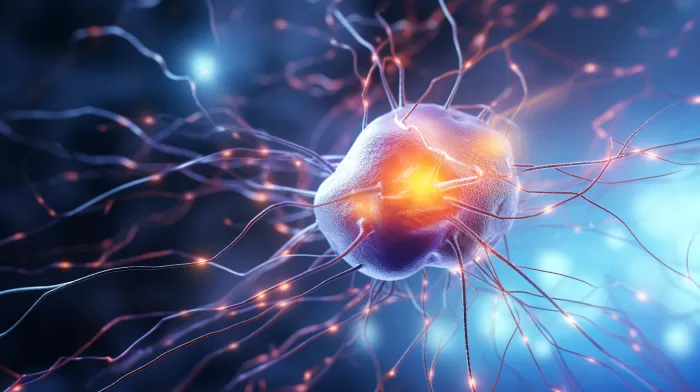Despite popular belief, our brains have the extraordinary capability to re-wire and improve themselves through a process called neuroplasticity – also known as synaptic plasticity. This means that the adult human brain can go beyond its perceived limits, increasing its size, connections, and functionality. Each new thought, event, or life experience can contribute to restructuring your brain’s physical form.
How Neuroplasticity Works
Neurons are the electrically excitable cells located in your brain. They transmit and process information through electro-chemical signaling, which means that they function through a blend of electrical signals and chemicals sending messages among different body parts.
The human brain is likened to a powerful computer. It houses approximately 100 billion neurons and 1,000 trillion neuronal connections. Each neuron connects to as many as 10,000 others. Though adult neurons may not multiply like other human tissues, their size and connections can still be expanded, and their functions can be further refined.
Brain Plasticity and Changing Yourself
Do you want to transform your cravings for unhealthy foods? Do you want to train your mind to adopt positive thoughts every single day? These are just some of the changes you can achieve with the help of brain plasticity. Here’s how:
- It only takes four weeks to convert your unhealthy food cravings to healthier options. By controlling your thoughts, you can weaken your desire for unhealthy food while gradually increasing your preference for a healthier alternative. For example, substituting your craving for a soda with a fresh lime-aid.
-
You can even retrain your thoughts each day. Establish a habit of only allowing positive thoughts to enter your mind. Whenever a negative thought emerges, recognize that it’s not the subject matter that makes you feel bad, but rather, your perspective on it.
For example, you receive a call from an important but upset client, and you instantly imagine the potential loss of business and its unfavorable consequences. Instead, you can counteract this train of thought by considering the positive alternatives (e.g., learning something new from the situation or finding a solution to the problem). Embracing these positive alternatives will eventually enable you to approach new challenges enthusiastically.
How to Boost Neuroplasticity
- Challenge yourself. Engaging in activities that challenge your cognitive abilities, such as learning a new skill or subject, can lead to increased brain function and neuroplasticity.
-
Practice mindfulness and meditation. Regularly engaging in mindfulness exercises and meditation can significantly enhance your focus, overall well-being, and brain power.
-
Get enough sleep. Lack of sleep can impact neuroplasticity, as it affects memory consolidation and impairs your cognitive function.
-
Consume brain-boosting nutrients. Including omega-3 fatty acids, magnesium, and vitamin D in your diet can help maintain and increase brain function. Sources for these nutrients include almonds, flaxseeds, and fatty fish like salmon and sardines.
-
Stay physically active. Exercise is not only good for your body but also for your brain, as it enhances brain health and cognitive function.
Conclusion
The adult human brain is not static and has the incredible power to change and evolve. By understanding the concept of neuroplasticity, anyone can adopt strategies that lead to a healthier, happier, and more fulfilled life experience. Start re-wiring your brain today and experience the benefits of improved brain function and plasticity.



